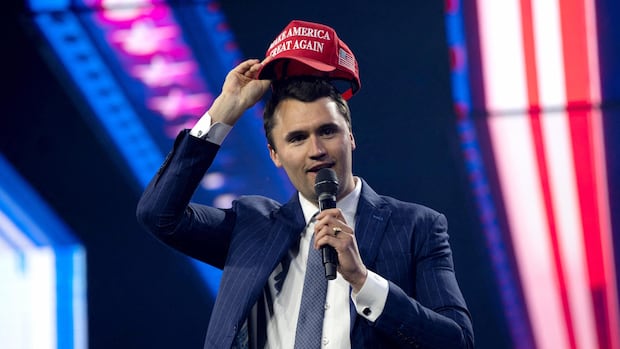The tragic shooting death of conservative activist and commentator Charlie Kirk on a Utah university campus is poised to have a significant impact on the United States, potentially exacerbating the existing polarization in the era of Donald Trump. Kirk, the 31-year-old founder of Turning Point USA, played a crucial role in garnering support from younger voters for Trump and his MAGA movement. Following the shooting, President Trump described Kirk as “a martyr for truth and freedom,” expressing deep sorrow and outrage over the incident.
In his address from the Oval Office, Trump called for a collective acknowledgment of the consequences of demonizing individuals with differing viewpoints, emphasizing the need to end the cycle of violence stemming from divisive rhetoric. While there was an opportunity for Trump to unify the nation, he instead singled out left-wing rhetoric, condemned political violence against Republicans, and pledged to take decisive action against it.
The aftermath of Kirk’s death has left many questioning whether Trump’s response can bridge the growing political divide in the country or if it will only add fuel to the fire. The U.S. political establishment, shaken by what Utah’s governor labeled a “political assassination,” is reflecting on the implications of the shooting for the nation’s future.
Acts of political violence like this are not only alarming but also tend to perpetuate further violence, creating a vicious cycle of reprisals and copycat incidents. Trump’s history of using incendiary language, as evident in his past statements, has raised concerns about his approach to addressing such incidents and the potential impact on civil liberties.
The frequency of political violence has been on the rise, with recent years witnessing a surge in attacks motivated by partisan beliefs. While there has been condemnation from across the political spectrum for Kirk’s killing, questions have been raised about the bipartisan response to similar incidents, highlighting the need for a unified stance against political violence.
Political leaders play a crucial role in shaping public perceptions and responses to such events. In the wake of Kirk’s death, calls for a collective denouncement of political violence have been echoed by voices on both sides of the aisle. As the nation grapples with the aftermath of this tragedy, there is a growing consensus that political violence must be unequivocally condemned, and efforts made to prevent its escalation.
The escalation of political violence in the country has become a cause for concern, prompting calls for a concerted effort to address the underlying issues driving such acts. The need for a unified stance against political violence is paramount, with leaders and citizens alike urged to work towards a more peaceful and inclusive political landscape.



